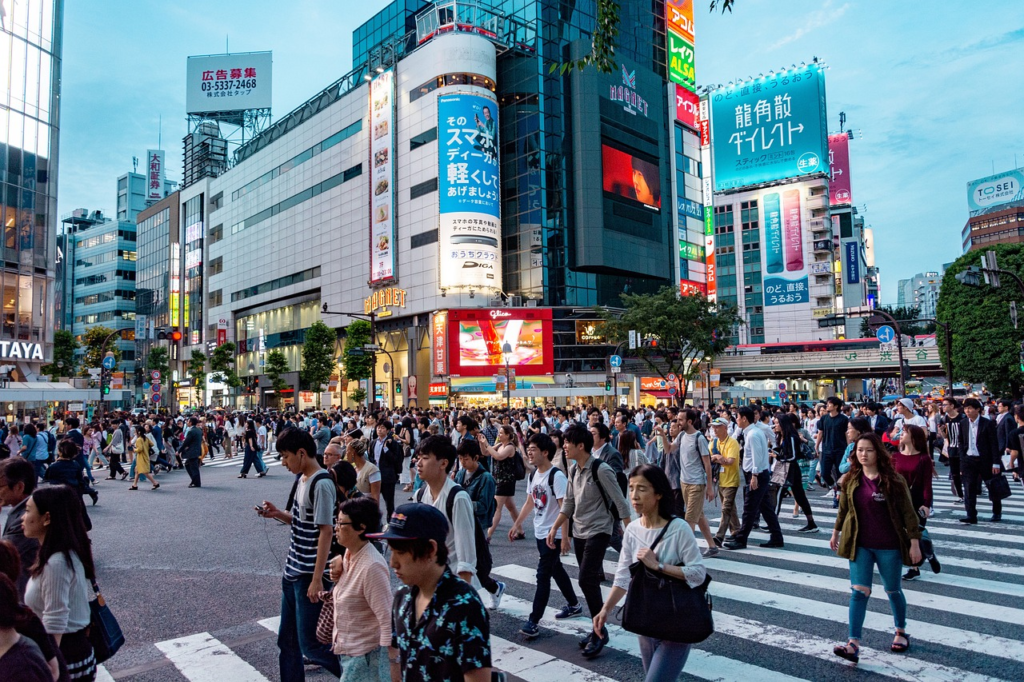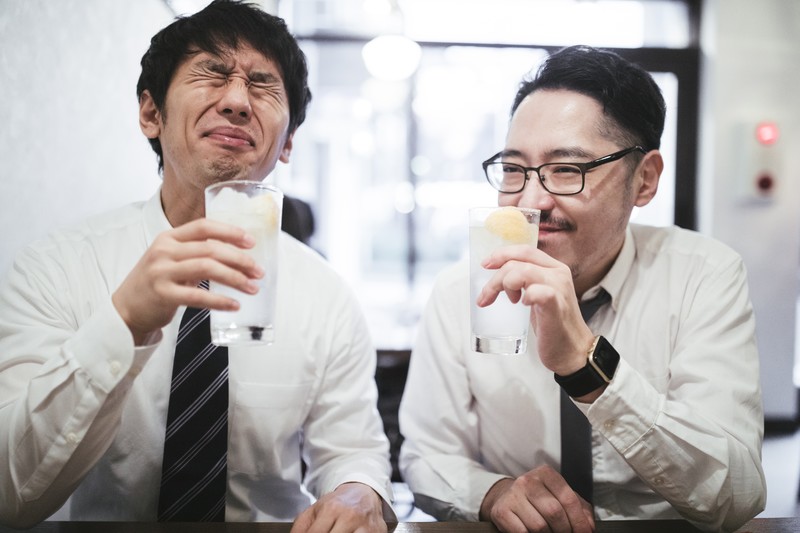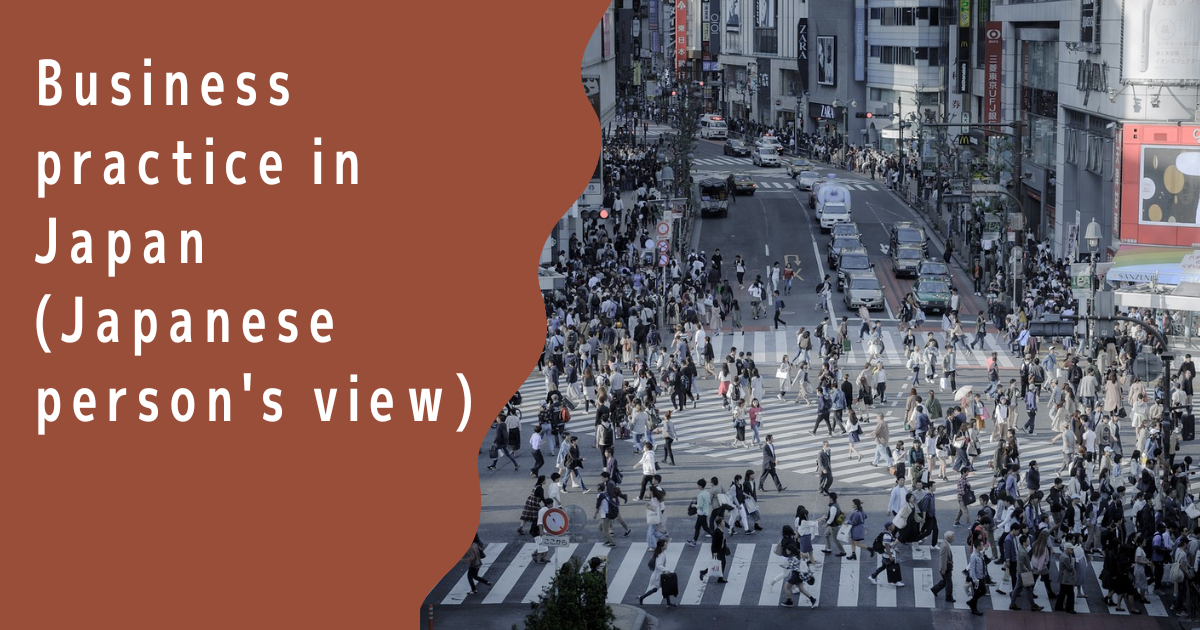When you have possibility to touch Japanese style business such as working in a Japanese based company or doing business with Japanese companies, you might be wondering how Japanese people do business.
If you don’t know business practice in Japan you could possibly be thought to be impolite or end up failing working with them.
In this article I’d like to explain what Japanese business practices are and hope you will learn to know how you deal with Japanese companies and their workers.

Let me introduce about myself.
I am Hiro from Tokyo, Japan, born and raised here.
I have working experience in Japanese companies (logistics and manufacturing) as an international sales for almost 10 years, so I well understand Japanese people’s work practice.
Business practice is quite distinctive and strict in Japan

If you had chance to work with Japanese customer/partner, you could have thought that Japanese people working there were quite distinctive
and they are extremely polite and they follow hierarchy system in their society.
Yes, we Japanese people must show politeness and change attitude based on hierarchy system in Japanese company and in the society, otherwise we cannot get along with our customers, supervisors and even colleagues.
I’d like to show some of our distinctive working practices in Japan.
Importance of greeting

First of all, we Japanese people consider greeting is important.
If we won’t greet and bow when we meet supervisor, senior or customer, some of them may feel uncomfortable.
For instance, when you come to your office in Japan in the morning, if supervisor or senior are already there at their desk, you could greet saying “Ohayou gozaimasu (Good morning)” and bow.
When you go to customer’s company and meet a person in charge of you, you need to stand up (if you had seat) and say “Osewa ni natteorimasu. (Polite way of saying “Hello” in Japan)” and bow.
Those are the way we do when meeting supervisors, seniors and customers to show politeness to them.

We sometimes show politeness even to colleagues saying “Ohayo gozaimasu (Good morning)” instead of Ohayo (Informal way of saying good morning).
I consider Japan is one of the most politest country in Japan.
Business cards exchange

When exchanging business cards, we have our own rules not to be impolite.
We consider that the business cards reflect identity of card owners and we never treat the cards roughly.
If we start to play with received name cards such as bending or twisting, the name card owner may feels humiliated.
When passing your name card, you should hold your card by both hands and tell your name, company and department name and say “Yoroshiku onegaishimasu (Polite way of saying nice to meet you.)”.
When receiving your customer or business partner’s name card, you must stand up and receive it by both hands and say “Arigato gozaimasu (Tank you.)”.
When crossing both sides name cards it is better passing your card in lower height if person exchanging name cards is your customer.
It is quite difficult to master how to exchange business cards in Japanese style, so if you are foreigner to Japanese, you don’t need to follow their rule strictly because they also know you don’t well understand Japanese people’s distinctive exchanging name cards style and they never mind.
If you are interested in business card exchange etiquette in Japan, please refer to below article.
Dress code

Usually, Japanese companies dress code is strictly ruled.
Just not only wearing a suit, a particular color of suit and shirt is preferred for any genre of workers (sales, sales assistant, accounting, administrative, etc.).
If you enter Japanese company in Japan, Japanese supervisor or customers prefer you to wear blackish suit and whitish shirt with simple tie (black tie should be avoided because it associates funeral).
If you wear whitish suit, most of Japanese think it is not for job, but for attending party. If you wear blackish shirt, they might regard you as a mafia member.
They have such kind of prejudice.

I know it’s too strict reflecting collectivistic Japanese society.
However, I guess most of Japanese companies in other countries allow employees to wear plain clothes (following your country’s style), not as strict as Japanese companies in Japan, but at least when meeting with Japanese customers/business partners, wearing suit or shirt is prefered by them.
Indirect way of communication

Japanese people love indirect way of communication.
They won’t tell negative things often
Usually Japanese people don’t prefer to say negative things directly and tend to tell positive things only to keep good relationship with you.
When you have meeting with Japanese customer/business partner, they won’t directly refuse your offer usually even if your suggestion cannot be definitely accepted by them, so you need to feel their facial expression and the way of uttering words and understand they like it or not.
I know it is really frustrating, but we have such king of working practice of not telling negative matters directly.
Importance of understanding situation
We Japanese people always think it’s important to understand situation, because as I told many Japanese people won’t tell negative things directly, so we need to understand situation by yourself if each behavior is bad or good.
If you suggest having dinner at A restaurant to Japanese colleagues, they might basically agree (even if they don’t like A restaurant) but won’t end up show up by telling they are busy or any reason. They won’t say “No” because they fear their relationship gets worse if they refuse it..
If you deal with Japanese person, you could keep such Japanese peoples tendency in your mind.
Drinking together

Japanese people consider it is important to have dinner with supervisor, customer or business partner to build a relationship and if they drink together, your communication with them can be much smoother during office hours after such event.
If you attend dinner and communicate with them, next day they tend to agree to what you have been suggesting such as purchasing your company’s products, helping your projects, etc.
If you don’t hate drinking and build a relationship with customer, you should definitely do it to Japanese customer/partner too.
If you are interested in Japanese drinking culture, please refer to below article.
Conclusion
Japanese working style and culture is quit distinctive and it cannot easily understood by other countries people.
They usually are extremely polite and don’t like direct way of communication.
If you understand such Japanese people’s way of thinking, you possibly could get along with them more.
I hope you will success building good relationship with Japanese company, supervisor, customer or business partner.
Thank you for reading my article till the end.





コメント Comment